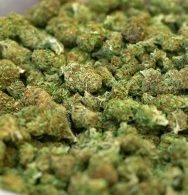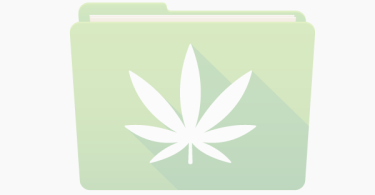Dr Adam R Winstock
Founder and Managing Director Global Drug Survey
Consultant Psychiatrist and Addiction Medicine Specialist
At GDS we really do have a thorough understanding of cannabis. We’ve put a lot of work into researching the way in which it’s used, how various preparations make people feel, how people want to see it regulated and how it’s used as medicine. We’ve explored harm reduction strategies, cannabis concentrates, vaping and the type of support needed to reduce use.
Investigating the best ways to quit
One in three of you have told us that you’d like to use less cannabis and almost half of you have tried to stop. So this year we’re asking people about their experiences of trying to quit so that we can pass on the ways that work and the ways that don’t.
Dependency and withdrawal
Around 10-15% of current cannabis users are dependent (the rate is higher for those starting in their early and mid-teens). And some of the pitfalls associated with dependency are:
• sleep difficulties
• craving
• low mood
• irritability
• loss of appetite
• vivid, sometimes disturbing dreams
and less commonly
• excessive sweating
• intractable vomiting
• aches
• headaches
• shivers
People tell us, however, that when withdrawal is over (5-10 days for most) they feel brighter and their mood improves.
Quitting cannabis is not that well catered for by clinical services. Historically, drug treatment has been set up to manage people with heroin and alcohol problems and many people with a cannabis use disorder don’t feel supported by these places. It’s true to say we’re just not good at treating cannabis dependency or withdrawal. That’s why through our global drug survey, we’re exploring recent experiences of people who’ve tried to stop using cannabis and we aim to share what we learn to help others quit.
So, if you toke and puff, love your doobies, spliffs and bongs but have tried to stop using we’d love to hear from you. Stick the kettle on, kick back and take 15-30 minutes to take part in the world’s largest drug survey now Global Drug Survey 2018
After you’ve done that if you want some personal advice and feedback on your cannabis use including how to use more safely or stop using, try our free resources including the GDS Highway Code
Our advice on quitting (adapted from Winstock et al BMJ 2012 and the safer use limits www.saferuselimits.co)
Management of withdrawal
• Cut down slowly to less than half gram /day before stopping completely
(think ‘diet spliffs’)
• Leave your first spliff until later in the day
• If you use with tobacco – think about using nicotine replacement or an e-cig if you are thinking of giving up tobacco at the same time
• Promote healthy sleep patterns – avoid caffeine after 2pm. (Caffeine can worsen withdrawal especially irritability, restlessness, and insomnia)
• Learn relaxation techniques – progressive muscular relaxation, distraction, mindfulness
• Do some exercise
• Seek support from family or friends, share your plans and talk to them about nature, duration, and severity of withdrawal
• Give yourself some space from people, places and things you associate with using cannabis
• Clear out any stashes or roach boats you might have saved for rainy days
• Talk to your doctor about getting a few days of sleep medication
• Seek medical support if irritability and restlessness are issues for you
• If you have mental health or physical health problems, these can be affected by stopping, so seek medical advice.










